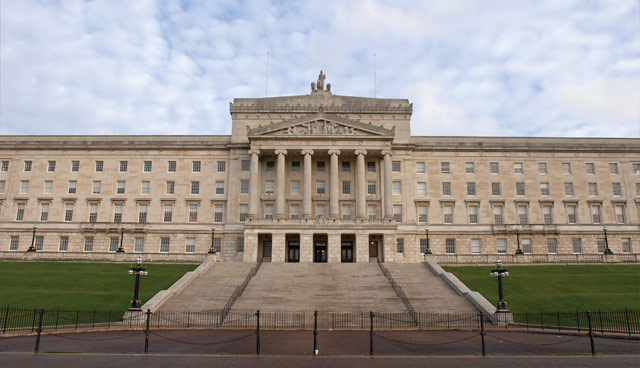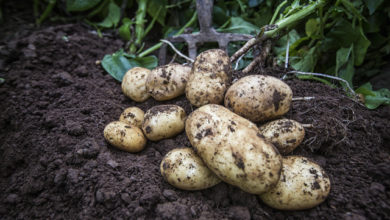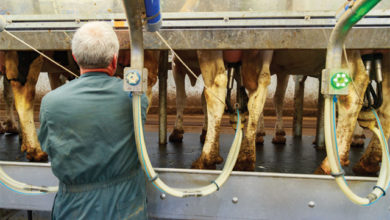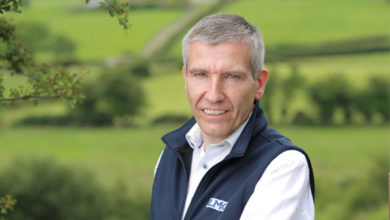Farm support beyond Brexit

Once the United Kingdom leaves the European Union, London will become the core driver of farm support policy and funding in Northern Ireland. Richard Halleron analyses the potential direction of travel.
Agriculture is a devolved matter, from a political perspective. However, local elected representatives must take their lead from Westminster when it comes to setting the priorities for farm support into the future.
Given this backdrop, it is well worth keeping a close watch and brief on the public utterances of Department of Environment, Food and Rural Affairs (DEFRA) Secretary of State Michael Gove MP on these matters.
Speaking at this year’s Oxford Farming Conference he said that food is at the heart of every farming business and farming is the backbone of the rural economy, adding: “Our ambition at DEFRA is to lead the world in our thinking about food. This depends on our ability in the first place to maintain a healthy farming sector and overall a robust rural economy.
“That in turn requires us to think about the role of government in supporting all those who work and live in the countryside. We have already pledged to spend the same level on farm support in cash terms after we leave the European Union right up to the end of this Parliament. That is, and often forgotten, a greater degree of security over future funding for farming than that enjoyed by any other existing EU nation.
“I recognise, however, that farming, because it is a quintessentially long-term business, benefits from as much certainty as possible about the future and with the scale of change coming that I mentioned earlier, the more assurance we can provide the better.
“I cannot entirely pre-empt the outcome of the Government’s Spending Review but both the Chancellor and the Chief Secretary to the Treasury are committed to using that review to support growth, encourage technological innovation and demonstrate British leadership in areas of business excellence, as well as spreading prosperity more equitably across the country.
Gove believes that if agriculture can embrace technological change then the rural economy will be able to benefit in the upcoming UK Spending Review.
“Embracing change, supporting reform is the key to unlocking the Treasury’s special box,” he stresses. “We have secured a seven-year agricultural transition, beyond the 21-month transition period set out in the EU withdrawal agreement, to enable farm businesses to plan ahead.
“That is also why we have published proposals to allow for agricultural support payments to be rolled forward into a lump sum which can be used now to re-model farm businesses for the future.”
Gove adds: “We have commissioned a review by Lord Bew of Donegore to look at what factors should be taken into account to ensure an equitable intra-UK allocation of domestic farm support funding.
“And, again, in advance of the Spending Review the Government has also made a commitment to invest in the extension and improvement of rural broadband coverage.
“In the last Budget the Government announced that it would invest a further £200 million over the next two years, providing full fibre broadband in rural areas. This is in line with the ‘outside-in approach’ set out in last year’s Future Telecoms Infrastructure Review, which committed to connecting remote rural areas so that the UK has a truly nationwide and state-of-the-art broadband network at last.
“Because we all know, the potential of the Fourth Agricultural Revolution will only be fully realised if we ensure the very best levels of digital connectivity across rural Britain and that is why this investment has been prioritised.”
Last autumn Gove published a UK Agriculture Bill. Within it provision is made for payments to improve productivity specifically to support collaboration and to help rural businesses cope with change.
Gove further explains: “It is critically important that we support efforts to bring farmers together, and also support innovation and collaboration. This will help ensure that we keep a wide range of different farm businesses resilient in the face of change.”
The DEFRA minister makes no secret of the fact that he wants farming across the UK to become more environmentally friendly. Again, speaking at the Oxford Farming Conference, he says that outside the EU and the CAP, Westminster can reward farmers for the goods they generate which are not rewarded in the market. He adds that the proposed Environmental Land Management (ELM) contracts will provide farmers and other land managers with a pipeline of income to supplement the money they make from food production, forestry and other business activities.
“The potential of the Fourth Agricultural Revolution will only be fully realised if we ensure the very best levels of digital connectivity across rural Britain and that is why this investment has been prioritised.”
— Michael Gove, MP
“ELMs should be seen as an additional crop, with the Government, rather than a commercial player, entering into a contract with farmers to ensure we increase the provision of environmental services, many of which will also enhance farm productivity,” he says.
“ELM payments are designed not just to complement existing sources of income but also complement existing initiatives many farmers already pursue.
“For example, the adoption of minimum tillage techniques can not only decrease costs and improve productivity but it also reduces run-off and erosion. That is a public good which contributes to improving water quality and for which farmers could be paid.”
Significantly, Gove believes that farmers who have chosen to go organic can secure a premium in the market for their produce. However, their contribution to improving the level of organic matter in soils also leads to more carbon sequestration and broader environmental resilience.
“These public goods too could be rewarded,” he stresses. “Uplands livestock farmers, including commoners of course, are responsible for maintaining some of our most iconic landscapes in the condition which not just sustains their farm businesses but also acts as a habitat for precious native species.
“Improved habitats with more diverse wildlife are also a public good we could recognise. Equally, farmers could be rewarded for enhancing the natural capital of which they are stewards, protecting ancient woodland, bringing woodland under active management or restoring peat bogs. These all generate public goods by adding to our carbon storage, boosting air quality, tackling global warming and also improving water quality.
“Because we recognise that farming is a long-term business we believe these public goods should be paid for through multi-annual contracts.”
Meanwhile, the Ulster Farmers’ Union (UFU) has told MPs there is scope in the draft UK Agriculture Bill for Northern Ireland to develop its own post-Brexit agricultural policy and to allow, in the absence of a local Executive, the status quo to continue until a new policy direction can be established.
UFU president, Ivor Ferguson, and chief executive, Wesley Aston, told the Agriculture Bill Committee in Westminster that, at a UK level, key issues need more legal certainty.
“These include the standard of imported food, longer term funding for agriculture and the effective operation of the agri-food supply chain. We also stressed that future support arrangements must reflect final decisions on trade relationships with the EU-27 and the rest of the world,” says Ferguson.
The UFU made the case at Westminster to regionalise Northern Ireland in policy decisions. “We are a small, flexible, region with strong collaboration between farmers, their suppliers, processors and environmental groupings. This must be reflected in how post-Brexit policies will be implemented in Northern Ireland,” explains the UFU president.
The UFU is keen to see new ideas piloted, including ways to encourage more young farmers into industry. It also wants to see the issue of land tenure tackled.
“We need more investment to improve land, and the current model does not encourage that. We want to see fiscal incentives so that these issues can then be properly addressed in Northern Ireland,” Ferguson explains.
He concludes: “We are now entering a time of unprecedented change which presents a once-in-a-generation opportunity to shape the future of Northern Ireland agriculture. The UFU has a vision of a productive, progressive, sustainable and most importantly profitable farming sector and we want to work with the Government and other industry partners to realise this.”






